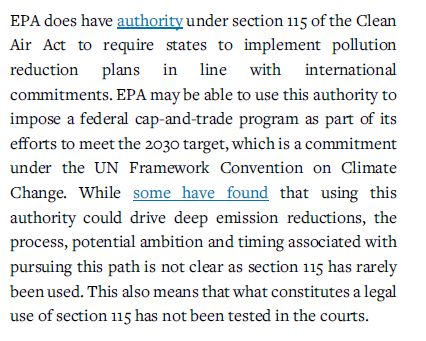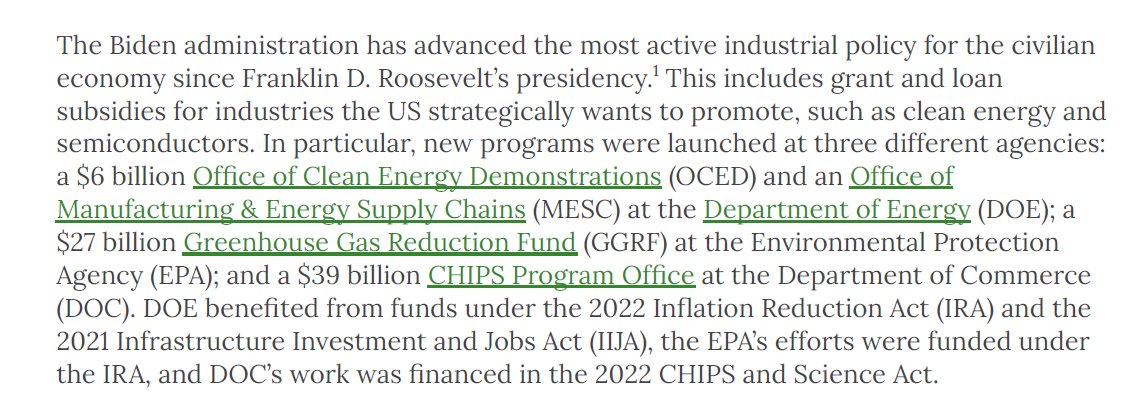Report from @rhodium_group: even without a fee on methane emissions, Clean Electricity Performance Program (CEPP), repeal of fossil fuel subsidies, or a carbon tax, the US can meet its climate objectives with rest of 2 packages and aggressive regulation.
rhg.com/research/us-cl…
rhg.com/research/us-cl…
But it will require every branch and level of government to go big, if we are to eliminate the equivalent of a range of four Californias to three Texases by 2030. 

The authors do not mince words: "Closing the emissions gap will be one of the most challenging things the US has ever attempted." 

Report also assumes that authorities from the New Deal's Commodities Credit Corporation, to Nixon's Clean Air Act, to Ford's Energy Policy and Conservation Act, are used to the hilt. 

Finally, the report notes some additional novel steps that could be taken under procurement laws, the Clean Air Act's rules around US international commitments, and more. 



• • •
Missing some Tweet in this thread? You can try to
force a refresh













